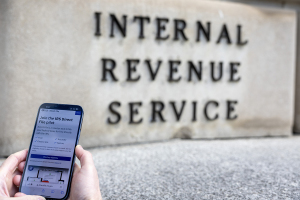Pursue holiness, even when it's unpopular

Over the course of our study on God’s holiness, we have seen the significance of the Lord’s holiness when His creatures encounter Him, and the reverence and awe His holiness produces. We also have seen why His holiness has this effect upon us, because God is incomparable in His holiness, incorruptibly pure in His holiness, and holy in all His infinite perfections.
God’s holiness has a certain and inevitable impact when He interacts with sinful people. God’s holiness results in His wrath on sinners who come to Him in their sins. However, God’s holiness does not always end in wrath upon sinners because God, in His holy love, sent His perfect Son to die on the cross and bear the sins of all who would put their faith in Him.
When we, as Christians, consider these truths about God’s holiness, we might ask, “What comes next now that I have been accepted by God in Christ because of God’s holy grace?”
As people who love Christ, we want to be holy and pursue holiness – and we all need help with that pursuit. Hebrews 12 gives us a clear outline and concise summary of how to pursue holiness as a believer.
First, to pursue holiness, we must set aside hindrances.
The writer specifically notes two things that cause hindrances to our pursuit of holiness by faith. First, he mentions encumbrances, which are things that are unnecessary or that get in the way of running the race of faith so that we are pursuing holiness. We must set aside the things that drain our time, focus, energy, and attention away from what God has called us to do.
A second hindrance the writer mentions is sin. This warning should be obvious because people can’t pursue holiness and hang on to sin. The problem is, though, that sin so easily entangles us, which is extremely difficult to understand and accept at a practical level for many Christians. We must not compromise for sin. We must not make excuses for sin. We must not blame others for our sin. We must not justify our sin but instead we must lay aside all our sins to run the race of faith and pursue holiness in our lives.
Next, to pursue holiness, we must stay focused on Christ.
This is so crucial because it is all too easy for us to become focused on all the hindrances we just set aside. We can become consumed with all the sins we battle, the temptations we face, the weights we carry, and all the impediments on the track. Our race becomes impossible to run when we try to employ our own power rather than by faith in the power of Christ in our lives.
Instead, we must keep our eyes focused on the Lord Jesus Christ, who is the author and perfector of our faith. The writer of Hebrews exhorts us to run the race of faith with our focus kept on Christ because He gives and sustains our faith until it reaches its goal of total and perfect holiness in glory with Him. Christ is the great resource we have in this race because of our reliance on Him.
Third, to pursue holiness, we must submit to divine discipline.
No one likes discipline because it is hard and painful. Discipline stretches, challenges, and corrects us. Yet even though we chafe against discipline in our human flesh, we must submit to God’s discipline if we would be holy.
God’s discipline isn’t merely correction for some sin present in our lives, but anything God brings into our lives to push us toward holiness and greater trust and obedience to His Word. Trials are used by God in this way. Difficulties, tribulations, sufferings, and trials are all designed and employed by God to refine our faith and strengthen our character so that we might share in His holiness.
Fourth, to pursue holiness, we must strive for peace.
Sanctification, or pursuing holiness, is not meant to be something we do in isolation. Our growth in holiness is directly impacted by our relationships with other believers. In fact, we can go as far as to say that if we are not seeking peace with our brothers and sisters in Christ, then we are failing to pursue holiness as God has commanded in His Word. Disunity or bitterness are sins that so easily entangle us and must be put off if we are to run unhindered and unencumbered.
The context of this verse is for all believers — all those in the Church — not all men in the world. Many times, pursuing holiness will put us at odds with the world, and seeking peace with the ungodly at the same time we strive for holiness can be impossible. While we should not provoke unnecessary controversy or conflict with unbelievers, expending all our energy trying to make peace with those who are not at peace with God or us is futile. The context of Hebrews 12 is the community of believers, and we are to be at peace with fellow Christians.
Finally, to pursue holiness, we must strive for holiness.
Here the writer makes it plain that when he talks about running the race, he means to pursue holiness. We should be people intent on being holy as God is holy. That should be our aim, our joy, and our privilege — to reflect the character of our thrice holy God.
Striving for holiness is not salvation by works because these works flow out of the heart of someone who is already saved by grace through faith. However, if people aren’t pursuing holiness, then they prove not to be saints. Those who are not holy will not see the Lord. The reason for their lack of holiness is that they aren’t really in Christ at all, and their profession of faith is illegitimate. As 1 John 3:3 reminds us, if we really love the promise of Christ’s coming, then we will long for and pursue holiness.
It’s not popular today to pursue holiness. In fact, there’s often the sentiment that as Christians, we should only pursue holiness to a certain degree. Or there’s the idea that we will become holy through osmosis, without any effort required. Some fear that if we become holy, it will turn the world away from Christ because of its disdain for holiness. Those who pursue holiness are criticized often as being hypocrites because ungodly people equate a love for obedience to God’s Word with legalism and hypocrisy.
Yet we are called to pursue holiness, the holiness without which no one will see the Lord. This doesn’t happen by accident, because no one becomes holy without disciplining themselves for the purpose of godliness. God is holy, holy, holy; and in Christ, we have been made saints. May God grant us the grace to pursue holiness by faith, and may it be our prayer that we would be holy — as our Lord is holy.
Dr. Robb Brunansky is the Pastor-Teacher of Desert Hills Bible Church in Glendale, Arizona. Follow him on Twitter at @RobbBrunansky.




























